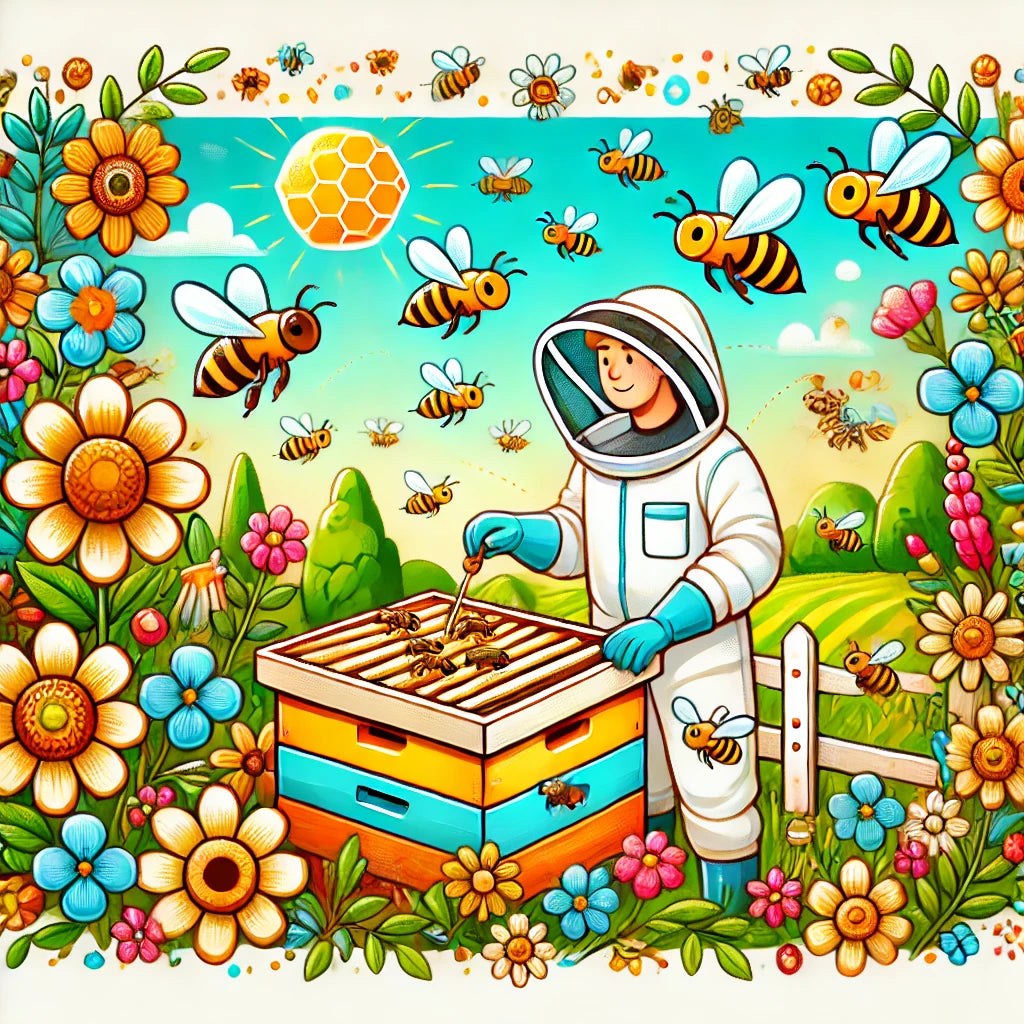
Find Healthy Honey Bees for Sale Near Me: Tips for Local Beekeeping Success
Finding honey bees for sale locally has become increasingly popular among beekeeping enthusiasts. Whether you’re starting your first hive or expanding your apiary, sourcing healthy, locally adapted bees is essential for a thriving colony. With rising awareness of bees' importance in pollination and environmental health, backyard beekeeping has gained widespread interest.
Local honey bees offer distinct advantages. They’re better adapted to regional climates, local flora, and pests, improving their survival and productivity. Purchasing from nearby suppliers also supports local beekeeping communities and ensures the bees are ethically sourced. Finding the right bees is the first step toward a successful beekeeping experience.
Why Buy Honey Bees Locally?
Buying honey bees locally benefits both beekeepers and the environment. Locally adapted bees have better resilience to regional challenges like climate shifts and pests, reducing colony loss and improving honey yields.
Benefits of Local Bees:
-
Adaptability: Local bees acclimate to seasonal weather patterns and native plants.
-
Resilience: Regionally sourced bees are more resistant to local pests and diseases, such as Varroa mites.
-
Reduced Stress: Shorter transport distances minimize stress on bees, increasing their survival rates.
-
Sustainability: Supporting local suppliers encourages ethical breeding and sustainable beekeeping practices.
-
Community Support: Local suppliers often provide guidance, education, and ongoing support for new beekeepers.
Types of Honey Bees for Sale
Choosing the right species of honey bees is essential for success. Each type offers unique traits suited to different climates and goals:
-
Italian Honey Bees: Known for their gentle nature, productivity, and disease resistance. Ideal for warm climates and beginners.
-
Carniolan Honey Bees: Thriving in cooler climates, these bees overwinter efficiently and have a calm temperament.
-
Russian Honey Bees: Highly resistant to Varroa mites and adaptable to harsh winters.
-
Caucasian Honey Bees: Noted for their long tongues, which help collect nectar from diverse flowers. Ideal for early spring blooms.
-
Buckfast Honey Bees: Bred for disease resistance and reliability, making them suitable for various climates.
Choosing the Right Bees: Consider your local climate, flora, and common pests. For colder regions, Carniolan or Russian bees excel due to their overwintering abilities. Italian bees perform well in warm climates, while Buckfast bees are a reliable option for diverse weather conditions.
Where to Find Honey Bees for Sale
Local sources ensure healthier bees adapted to your region. Here are the best ways to find honey bees nearby:
-
Local Beekeepers and Farms: Local suppliers often sell packages, nucs, or established colonies. These sellers provide high-quality bees and valuable regional insights.
-
Farmers’ Markets and Apiaries: Many small-scale beekeepers sell honey bees directly during swarm or honey production seasons. This option allows buyers to inspect the bees and discuss local practices.
-
Online Platforms: Websites, forums, and social media groups focused on beekeeping often list local suppliers. These platforms make it easy to find regionally adapted bees while supporting nearby sellers.
What to Look for When Buying Honey Bees
To ensure a strong, productive colony, focus on these key factors:
-
Health and Quality: Inspect bees for active movement, clean bodies, and healthy wings. Avoid bees showing signs of deformities, mites, or disease.
-
Certifications: Ethical breeders provide health certifications confirming the bees are free from diseases like American Foulbrood or Nosema. If transporting bees across state lines, ensure compliance with regulations and documentation.
-
Starter Kits and Equipment: Some suppliers offer starter kits that include essential tools like hive boxes, frames, and protective gear. These kits streamline setup for beginners.
Tips for Safe Bee Purchases and Transport
Ensuring the health and safety of honey bees during purchase and transport is critical:
-
Ask the Right Questions: Inquire about the bees' origin, species, and health certifications. Ask if the queen is marked and mated for easier hive management.
-
Proper Transportation: Transport bees during cooler parts of the day to prevent overheating. Ensure the container has proper ventilation and secure placement to avoid jolting. Keep travel time minimal to reduce stress on the bees.
Conclusion
Finding honey bees for sale locally offers numerous benefits for beekeepers and the environment. Locally sourced bees are better suited to regional climates, reducing colony loss and improving hive success. By choosing healthy, ethically sourced bees, beekeepers contribute to sustainable practices, stronger communities, and biodiversity. Whether you’re a hobbyist or expanding your apiary, purchasing local honey bees is the foundation for a rewarding beekeeping experience.
Frequently Asked Questions
Why should I buy local honey bees instead of imported ones? Local bees are better adapted to your regional climate, flora, and pests, increasing survival rates. Buying local also supports ethical sourcing and strengthens local ecosystems.
What are the best honey bee species for beginners?
Italian honey bees are ideal for beginners due to their gentle nature and productivity. Carniolan bees are excellent for cooler climates, while Buckfast bees offer disease resistance.
Where can I find honey bees for sale near me?
You can purchase bees from local beekeepers, farms, farmers’ markets, or online platforms that focus on regional suppliers.
How do I ensure the bees I buy are healthy?
Inspect bees for active movement, clean bodies, and healthy wings. Verify health certifications from reputable sellers to confirm they are disease-free.
What is the best way to transport honey bees?
Transport bees during cooler hours with adequate ventilation. Secure containers in the vehicle to prevent jolting, and minimize transit time to reduce stress.



Leave a comment